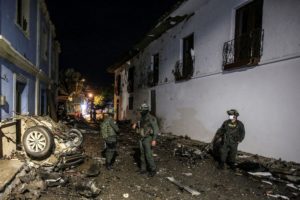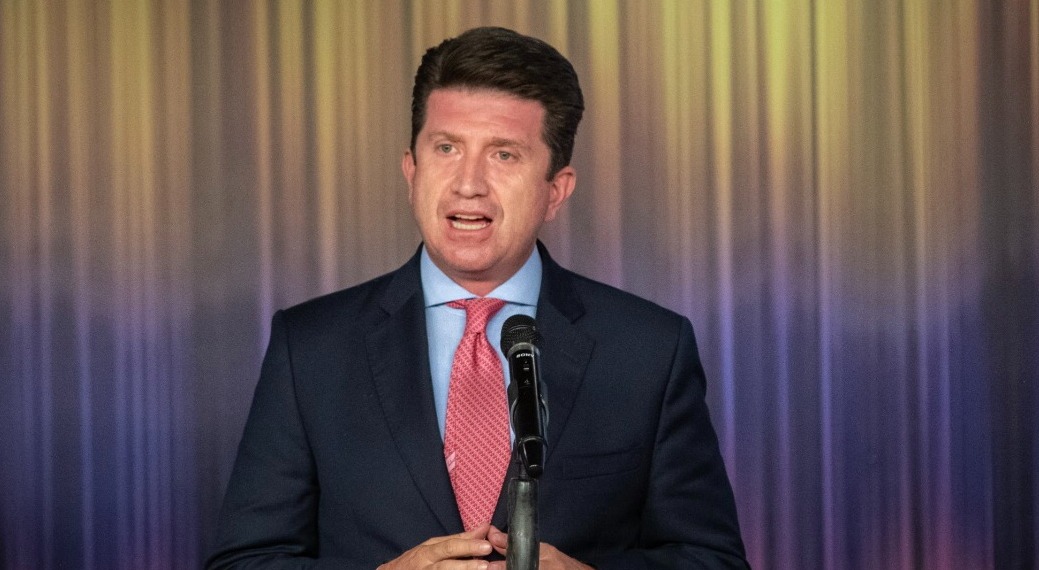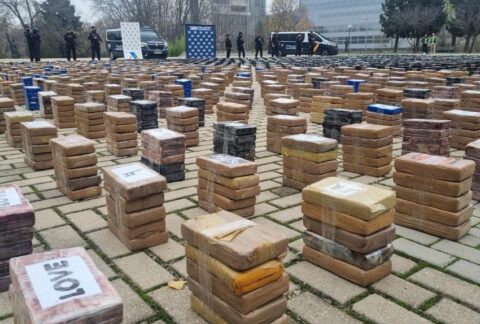The Colombian Military Forces neutralized a top leader among dissident groups of the Revolutionary Armed Forces of Colombia (FARC, in Spanish) in Cauca department, Colombian President Iván Duque announced at a press conference, January 24, 2022. Euclides España Caicedo, alias Jhonier, led seven FARC dissident groups in the country’s southwest and was the right-hand man of two other criminal leaders, alias Gentil Duarte and alias Iván Mordisco. “This is one of the most important blows to FARC dissidents,” Duque said.
Alias Jhonier, a member of the now defunct FARC for 25 years, was sent to Cauca by alias Gentil Duarte to control narcotrafficking routes in Colombia’s Pacific region, the Colombian newspaper El País reported. “This ringleader was sent there […] to expand, through narcotrafficking, the illicit, illegal, and terrorist activities of FARC dissidents in Valle del Cauca, Cauca, and Nariño,” Colombian Minister of Defense Diego Molano said.
In the last two years, alias Jhonier trained different columns of FARC dissident groups to extort peasants, producers, and farmers, as well as to carry out terrorist attacks in Cauca. He also sent Leider Johany Noscue, alias Mayimbú, head of a mobile column, to execute narcotrafficking operations in Nariño.

According to General Jorge Luis Vargas, director of the Colombian National Police, alias Jhonier was responsible for the car bombing in front of Corinto City Hall, in Cauca, which injured 43 people in March 2021. “He was the criminal leader of seven structures that had been burning vehicles, preventing the circulation of people between municipalities; […] more than 46 police officers have been injured at the direct order of this criminal,” Gen. Vargas said. “He had direct confrontations with the ELN [National Liberation Army], over [drug] labs, cocaine shipments […] both in Nariño and Cauca, along the Colombian Pacific coast.”
Molano said that alias Jhonier took part in the siege of Mitú, the capital of Vaupés department, in 1998. During the attack, the FARC killed 56 people (including police officers, soldiers, and civilians) and kidnapped 61 members of the public force, the Colombian National Center for Historical Memory says on its website. Alias Jhonier is also believed to be behind the kidnapping of a United Nations official in May 2017.
To neutralize alias Jhonier, elements of Colombia’s Public Force and Office of the Attorney General worked jointly. “We assigned this target to the Joint Special Operations Command, with help from the Army’s Third Division, the Pacific Naval Force, the 7th Air Combat Command, and the entire intelligence and judicial investigation apparatus of the National Police,” said Colombian Army General Luis Fernando Navarro Jiménez, Colombian Military Forces’ general commander.
“[We used] state-of-the-art technology […] and also our best troops […],” Gen. Navarro added. “We were advancing, we were moving troops, we were deploying operations until we found him in a rural area in the Toribío municipality, [Cauca].”
“This intelligence operation that had the support of human sources […] to find him and allowed us to neutralize him, also allows us to reiterate the message that ‘those who do the crime do the time,’” Duque said.









